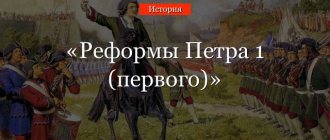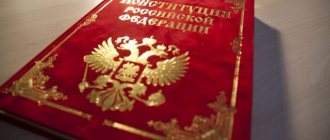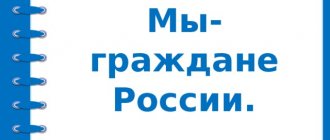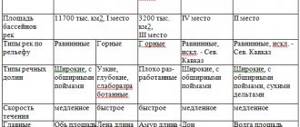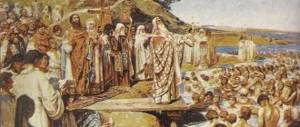Prerequisites for the unification of Russian lands. Strengthening the Moscow Principality
Lesson Plan
- Prerequisites and reasons for the unification of Russian lands
- Political system of Rus'
- The fight between Moscow and Tver
- The reign of Ivan Kalita
- Reasons for the rise of Moscow
1. Prerequisites and reasons for the unification of Russian lands
Batu's invasion devastated North-Eastern Rus'. Gradually, the revival of the cities of Vladimir, Suzdal, and Moscow began, and villages were rebuilt. Mass resettlement of residents of southwestern Rus' begins in the territory north of Moscow.
1. Prerequisites and reasons for the unification of Russian lands
Crafts and trade were gradually revived. More and more people appeared interested in eliminating the fragmentation of the country. Numerous borders impeded the development of trade, and civil strife hampered the development of the economy.
1. Prerequisites and reasons for the unification of Russian lands
Boyar estates grew, but the boundaries of the principalities did not allow the boyars to expand their possessions, so the boyars were also interested in creating a unified state.
1. Prerequisites and reasons for the unification of Russian lands
Despite the fragmentation in the northeastern Russian lands, a common language, culture, historical memory and Orthodox faith were preserved. The Russian Orthodox Church has always been united.
1. Prerequisites and reasons for the unification of Russian lands
The main reason for the unification was the constant threat from the Horde. The scattered principalities had no chance to resist the Horde. Only united Rus' could muster sufficient forces to repel the Mongols.
2. Political system of Rus'
The turn of
the XIII-XIV centuries is the time of the greatest fragmentation of North-Eastern Russia.
Chief among the princes was the Grand Duke of Vladimir, who received from the Khan of the Horde a label for a great reign. The Vladimir princes reigned in Novgorod. The princes tried by any means to obtain a label for the reign of Vladimir.
2. Political system of Rus'
The most powerful principalities:
Moscow, Tver, Ryazan - were called great, and their princes bore the title of great.
The major centers were Novgorod and Pskov, where republics established themselves. In each principality there were appanage principalities. Their rulers ruled their lands independently and only in foreign policy they had to act in concert with the Grand Duke.
Relations between the princes were regulated by agreements (the princes called each other “brothers”, “younger or older brothers”).
3. The struggle between Moscow and Tver
In 1304, the Horde khans transferred the label for the great reign of Vladimir to the Tver princes. The Tver principality, which escaped fragmentation, quickly gained strength. Tver begins to claim primacy among Russian lands.
Its main rival is the Moscow Principality.
3. The struggle between Moscow and Tver
The first Moscow prince was the youngest son of Alexander Nevsky,
Daniel (1276-1303). During his reign, Kolomna (conquered from Ryazan), lands from Kolomna to Serpukhov, and the Pereyaslavl principality (received by Daniil as an inheritance after the death of his childless nephew) were annexed to the Moscow principality.
3. The struggle between Moscow and Tver
In 1303, Daniel died and his son Yuri (1303-1325) became prince.
During his reign, Mozhaisk was annexed to the Moscow principality. By the beginning the 14th century, the Moscow Principality covered the entire course of the Moscow River, and the territory of the Principality grew three times.
3. The struggle between Moscow and Tver
Mikhail Yaroslavich Tverskoy proclaimed himself
“Grand Duke of All Russia” and collected tribute for the Horde on his own.
The Tver and Moscow princes went to the new Uzbek Khan to get labels. Mikhail did not stay there long, but Yuri lived for 2 years, establishing close relations with the new Khan Uzbek and marrying his sister. Yuri returned to Moscow with a strong Horde detachment and a label for the great reign. The Horde benefited from the confrontation between Moscow and Tver, which weakened both principalities.
In 1317, the Moscow-Horde and Novgorod troops invaded the territory of the Tver Principality.
3. The struggle between Moscow and Tver
Yuri and Mikhail
at Uzbek Khan
Mikhail's troops defeated Yuri's troops and his wife was captured, where she died.
Yuri sent a message to Uzbek that his sister was killed. They were both summoned to the Horde for investigation. There Yuri killed Mikhail at the Khan's throne.
3. The struggle between Moscow and Tver
Mikhail's son Dmitry arrived to Uzbek and proved his father's innocence. Khan gave him the label for the great reign of Vladimir.
In 1324, Dmitry Mikhailovich and Yuri Daniilovich were again summoned to the Horde for further proceedings. The Tver prince avenged his father - he hacked Yuri to death in front of the khan. He was executed, but the label was given to his younger brother, Alexander Mikhailovich.
Dmitry Mikhailovich kills Yuri Danilovich Moskovsky in the Horde.
From the "Royal Chronicler"
4. The reign of Ivan Kalita
After Yuri's death in 1325, his brother
Ivan Daniilovich, nicknamed Kalita, became the Prince of Moscow.
Ivan Kalita understood that he was unable to resist the Horde and wanted to push the Mongols against Tver.
When the anti-Horde uprising began in Tver in 1327, Kalita came to the Horde offering his services and, having received the Horde army, brutally suppressed the uprising. For this, Kostroma and Novgorod were transferred to his control, and he received a label for the Grand Duchy of Vladimir.
Kalita constantly pleased the khan and his entourage, for this he was given the right to collect Horde tribute from all Russian lands.
4. The reign of Ivan Kalita
Moscow under Ivan Kalita
Using his own funds and money hidden from the Horde, Ivan Kalita bought lands in neighboring principalities, annexing them to Moscow.
, the Rostov, Galician, Belozersk and Uglich principalities were annexed .
During the reign of Ivan Kalita, the Moscow principality became the strongest in Rus'.
5. Reasons for the rise of Moscow
1. Moscow was at the crossroads of trade routes;
7. The Moscow principality avoided fragmentation, like other great principalities;
8. The Horde khans, by assigning detachments to Moscow to fight other principalities, unwittingly contributed to its strengthening;
7. The Moscow principality avoided fragmentation, like other great principalities;
9. Ivan Kalita proclaimed himself
“Prince of Moscow and All Russia” ;
7. The Moscow principality avoided fragmentation, like other great principalities;
4. The Moscow princes used any means to expand their possessions (bribery, deception, violence, murder, betrayal);
5. Moscow was almost never subject to raids (since 1293 there had been no raids for about 100 years), this attracted settlers from other principalities, boyars moved to serve Moscow;
6. Metropolitan Peter moved to Moscow from Vladimir - Moscow became the center of the Russian Orthodox Church;
Complete blocks of presentations
in History and Social Studies
You can find it on the website
https://presentation-history.ru/
The site also contains
lesson plans in history and social studies from grades 5 to 11, test tasks in history and social studies, answers to ALL test tasks for the Unified State Exam and Unified State Exam in social studies and history of the FIPI open task bank , maps on General History and History of Russia, materials for additional activities and much more.
Homework
- Study paragraph 17
- Answer the questions on page 156 (orally)
- Learn main events and names
Lesson summary in 6th grade on the topic: “Strengthening the Moscow Principality. The reign of Ivan Kalita"
Lesson summary in 6th grade on the topic:
“Strengthening the Moscow Principality.
The reign of Ivan Kalita."
Lesson type:
lesson in discovering new knowledge
Lesson objectives:
educational:
form an idea of the political situation in Rus' in the first half of the 14th century and, based on the textbook material, lead students to identify the reasons for the rise of Moscow and the role of Moscow princes in this process;
developing
: continue to develop skills in working with historical maps and documents;
educating:
the formation of a friendly attitude towards another person, his opinion, the willingness and ability to conduct dialogue with other people.
Form of organization of educational activities
: frontal, steam room
Planned educational results:
subject:
the student
will learn to
: explain the reasons for the rise of Moscow and the role of Moscow Prince Ivan Kalita in this process;
the student will have the opportunity to learn:
use a historical map as a source of information; search for information in historical texts, textbooks; evaluate the activities of historical figures
meta-subject:
regulatory:
determine the topic and purpose of the lesson, plan ways to achieve the goal;
educational:
define concepts, carry out an extensive search for information: analyze, compare, classify and summarize facts and phenomena; use adequate language to express feelings and thoughts.
personal:
formation of the need for self-expression and self-realization through assessing the activities of historical figures, establishing the relationship between social and political events.
communicative:
development of cooperation skills, the ability to listen, enter into dialogue with comrades, formulate and justify one’s own point of view.
During the classes.
Stage 1
.
Motivation for learning activities.
Statements on the board:
V.Ya. Bryusov wrote “The city that Dolgoruky built in the middle of deep forests was lovingly elevated by his grandchildren above other cities!” K.A. Aksakov owns the lines: “The young forces woke up with you again, the trouble passed, and then Russia, united by you, was exalted!”
Questions for discussion with students
What city are we talking about?
What do we know about Moscow?
In connection with what events is Moscow mentioned in the chronicles?
Stage 2 Update and trial educational action
Teacher:
Today we will continue to study the history of Russia in the 14th century.
But, before getting acquainted with the topic of our lesson, let's turn to an excerpt from the ancient Russian chronicle. The Novgorod chronicler wrote with bitterness: “And the whole Russian land was torn apart.” Questions for conversation with students:
1. What period of Russian history does the chronicler tell about? 2. What is political fragmentation? 3. To what century do the chronicler’s words belong?
